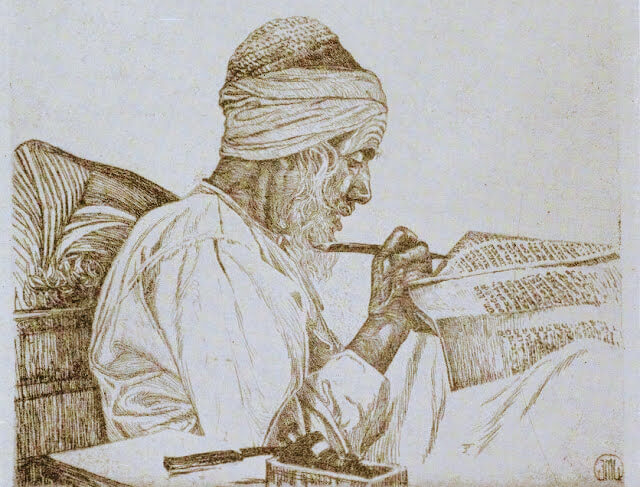
After Rav Yehudah recovered from a serious illness, a delegation of rabbis and students paid the illustrious scholar a visit. “Blessed is the merciful God Who has given you back to us,” they exclaimed, “and not to the dust!”
Rav Yehudah responded: “[By your statement], you have exempted me from the obligation of offering a prayer of thanks.” (Berachot 54a)
The Sages taught that one who survived a perilous situation — imprisonment in jail, crossing an ocean, traversing a desert, or recovering from a serious illness — should recite Birkat haGomeil. This Blessing of Deliverance expresses our appreciation to the “One Who bestows kindnesses to those who are not deserving.”
The episode with Rav Yehudah is quite baffling. How could his visitors’ somewhat peculiar greeting qualify as a substitute for Rav Yehudah’s own offering of thanks for his recovery to health?
For the Community’s Benefit
Dangerous circumstances are frequently the result of some moral fault or social failing. Those who find themselves in jail, sick, or crossing the desert are often individuals who defied the laws of society, who have neglected their health, or who seek to evade the restrictions of organized communal life.
This, however, was not the case with a righteous man like Rav Yehudah. Rav Yehudah was the leading scholar of third-century Babylonia; he was the founder and dean of the famed Talmudic academy at Pumbedita. His illness was not due to his own personal shortcomings, but rather to those of the society in which he lived. His local community failed to properly appreciate the tremendous privilege of hosting such an eminent scholar. Rav Yehudah’s illness was a wake-up call that jolted the people. As the possibility of losing their rabbi became very real, they became more aware of the benefits to be gained from him.
The community’s visit after his recovery reflected their recognition that thanksgiving really should come — not from Rav Yehudah — but from them. They expressed their appreciation for him in simple, artless words. In this way, they emphasized that without his guidance - in Torah, wisdom, and ethical living — they would be unable to aspire to higher values.
The visitors did not speak in Hebrew, the language designated to express lofty feelings of holiness, the holy language that angels speak. They used the language of the masses — Aramaic — an indication of their lowly state without Rav Yehudah’s elevating influence.
Due to his illness, the community had gained a heightened awareness of the great benefit that God provided in sending them such a holy and pious man. “Blessed is the merciful God Who has given you to us” to provide us with spiritual leadership.
“And did not give you to the dust.” They employed a plain, even coarse description of death, stripped of any deeper insight. In this way they expressed their awareness, after the shock of nearly losing their beloved leader, of their lowly spiritual and intellectual state. Until now, they realized, they had failed to fully avail themselves of everything his pure spirit could provide. Thus they portrayed the possibility of his death as being “given to the dust,” since his lofty influence would be irretrievably lost.
By their visit and unusual announcement, the community demonstrated that they now better recognized Rav Yehudah’s contribution, and that they would make a greater effort to follow his teachings and moral example.
The Scholar’s Response
Rav Yehudah was obligated to give thanks for his recovery. But after seeing this positive result of his illness — an awakening of the community’s thirst for Torah and wisdom — he realized that his illness was in fact a kindness from God, “Who bestows kindnesses to those who are not deserving.”
By answering ‘Amen’ to their declaration, Rav Yehudah acknowledged that he willingly accepted his suffering, knowing that it had been a source of blessing for the community as a whole. As the Sages noted, “More than the calf wants to suckle, the mother cow wants to nurse” (Pesachim 112a).
(Sapphire from the Land of Israel. Adapted from Ein Eyah vol. III, on Berachot 54a, sec. 9:20)
Illustration image: ‘Der Torahschreiber’ (Ephraim Moses Lilien, 1914)





